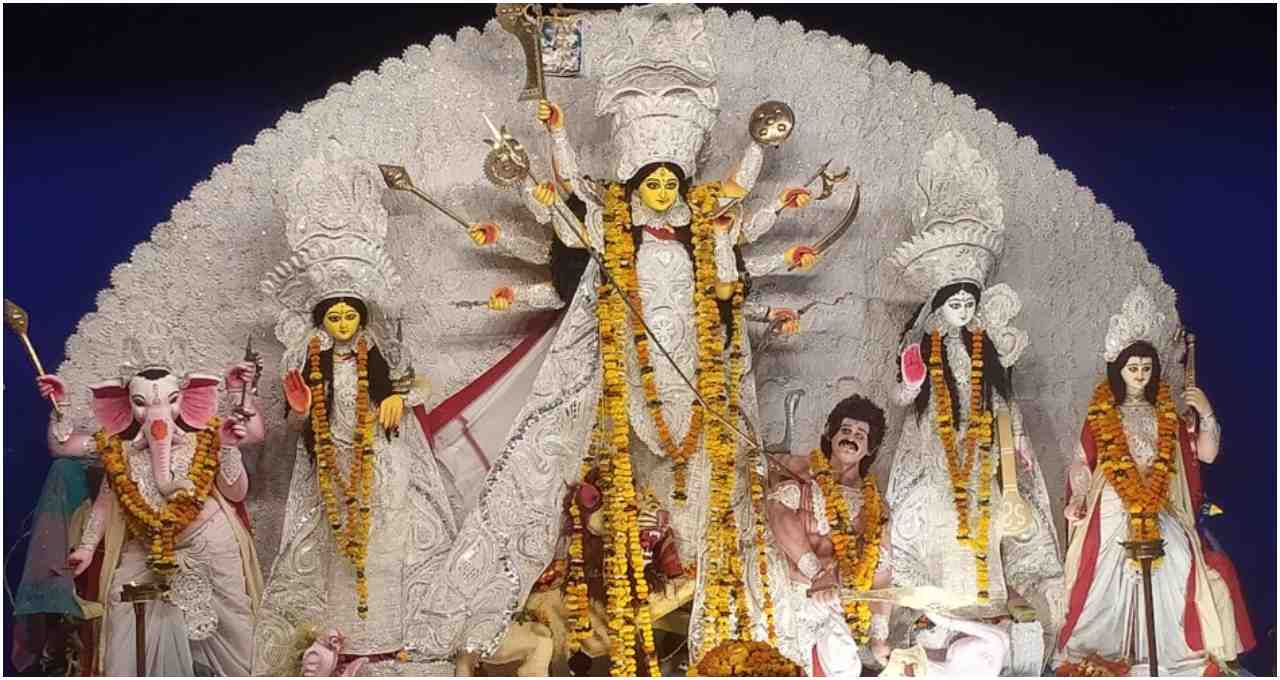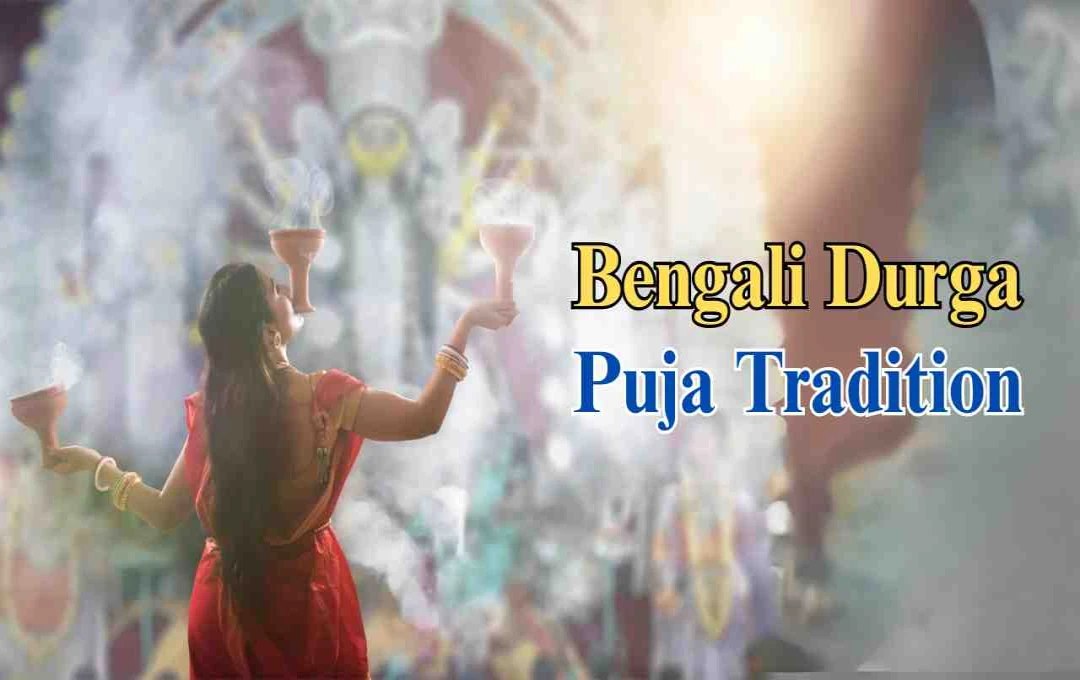The consumption of meat and fish during Bengali Durga Puja is a traditional and cultural practice. The Bengali community regards Goddess Durga as their daughter and prepares special dishes to celebrate her homecoming to her parental abode. Beliefs such as the Shaktism sect, family customs, and considering fish as a symbol of auspiciousness are behind this tradition. This culinary practice is solely a part of faith, not an act of breaking a fast.
Bengali Durga Puja: In West Bengal, meat, fish, and traditional dishes are an important part of the festivities during Durga Puja. The Bengali community, considering Goddess Durga as their daughter, prepares grand meals to celebrate her visit to her paternal home. This tradition is based on beliefs such as the Shaktism sect, family customs, and the perception of fish as a symbol of auspiciousness. Although not all Bengali families are non-vegetarian, most families celebrate the fusion of delicious cuisine and religious faith during this festival.
Unique Culinary Tradition of Bengali Durga Puja
In India, Navratri and Durga Puja are celebrated differently in each state. While North India observes fasting and consumes satvik food for nine days, the consumption of meat and fish during Durga Puja in West Bengal is a common and traditional practice. This difference is not limited to dietary habits alone; there are also religious, cultural, and social reasons behind it. In the Bengali community, Goddess Durga is seen not just as a deity but also as the daughter of Bengal. Due to this perspective, meat, fish, and traditional dishes become an important part of Durga Puja.
The Tradition of Considering Goddess Durga as a Daughter
In Bengal, Durga Puja is celebrated like a family festival. It is seen as Goddess Durga's homecoming to her maternal abode. Just as a family prepares food liked by a daughter when she visits, Bengalis, considering Maa Durga a family member, prepare traditional dishes to celebrate her happiness. These include fish, mutton, and other delicious delicacies. In this way, Durga Puja becomes an occasion for family reunion as well as a religious ritual.

Influence of Shaktism and Sacrificial Practices
In West Bengal, Durga Puja is primarily conducted according to the Shaktism tradition. In the Shakta tradition, offerings and, in some places, non-vegetarian food, are considered especially significant in the worship of the Goddess. In many locations, meat or fish offerings (Bhog) are made to Maa Durga. This Bhog is prepared in a special way, without onions and garlic, and is called 'Niramish Mangsho'. Afterward, it is distributed among devotees as Prasad. This practice clearly shows that in Bengal, this food is not merely for taste but an integral part of faith and tradition.
Significance of Fish in Auspiciousness and Prosperity
In Bengali tradition, the consumption of fish is not merely for taste or nutrition. Fish is considered a symbol of auspiciousness, prosperity, and happiness. Preparing fish dishes is mandatory on several traditional occasions in Bengal. Placing a pair of fish in front of the 'Mangal Ghat' (auspicious pot) on the morning of Vijaya Dashami is also considered propitious. Thus, the consumption of fish during Durga Puja is a religious and cultural symbol, not an act of breaking a fast.
Not All Bengali Families Are Non-Vegetarian
It is also important to note that not all families in the Bengali community consume meat and fish during Durga Puja. Followers of the Vaishnava tradition and Brahmin families observe a satvik (vegetarian) diet. However, in most Bengali families, meat, fish, and traditional dishes are an integral part of the festivities. In urban areas, due to new influences and health awareness over time, some families have started adopting a satvik diet. Nevertheless, this tradition of meat and fish consumption is centuries old and continues to give West Bengal's Durga Puja a unique identity today.
Family and Cultural Perspective
This culinary tradition in Bengali Durga Puja is also significant from a family and cultural perspective. Meat and fish dishes are not just food but a way to honor the Goddess and make the celebration grand. Family members prepare together for this occasion, and people of all ages participate in the festivities. This Puja becomes not merely a religious ritual but also a medium for social unity and family bonding.
Enrichment of the Festival and Cultural Identity
The objective of Durga Puja in Bengal is not merely to worship the Goddess. This festival socially and culturally connects the community. Traditional dishes, magnificent pandals, dance, music, and other cultural programs make this festival unique throughout the country. Meat and fish dishes are a part of this enrichment, demonstrating the deep connection between celebration and cuisine in Bengali culture.












